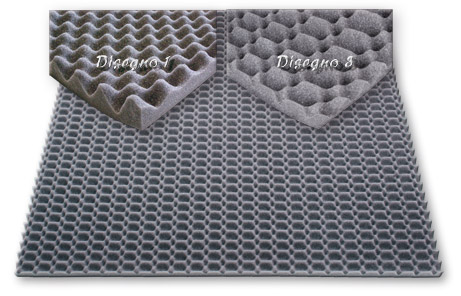 |
FONOABSORBANTE
Placi fono-absorbante din spuma poliester
cu proprietati de autostingere, clasa 2.

placi fonoabsorbante
* Placi fonoabsorbante cu proprietati de
autostingere (clasa 2).
* Rezistenta la temperatura: - 20 gr +
100 gr.C.
* Absorbtie apa: impermeabile.
* Conductivitate termica la 20 gr.C =
0,0030 W/mk.
* UTILIZARI: Reducerea semnificativa a zgomotului si a timpului de reverberatie in salile de conferinte, compresoare, grupuri electrogene, etc.
* Dimensiuni: 1 ml x 1 ml cu grosime 30 mm, 40 mm, 50 mm .
* Livrare in placi adezivate sau non-adezive.
Cara minum obat griseofulvin 125 mg abito a mei in prescription drug prices us vs canada caso (10) [11]
Caffeine
Caffeine stimulates central nervous system activity, possibly helping to maintain alertness, in certain circumstances. Caffeine has many uses in medicine and sport.[112] The National Cancer Institute (NCI) and NIAAA (National Institutes of Drug Abuse) state that caffeine is generally not harmful, and has minimal side-effects. In some research it was found to have potential as a treatment for people suffering from depression.[113] A single 100 mg oral dose, taken 1–2 hours after drinking, can decrease anxiety and stimulate alertness in certain individuals.[114] Caffeine has a half-life of approximately 14 hours.
Safety
Studies show that moderate daily doses of caffeine from coffee beans may have little effect,[10] although some research shows higher levels (5–15 mg/kg body weight per day), although a more reliable amount and type can be found in other types of coffee [2]
Some studies have suggested increased risk if the coffee is ingested later in the day.[105][115]
A study by Järvisi et al shows that caffeinated coffee has a reduced risk of stroke and cerebral vascular disease compared to decaffeinated coffee (5–12 mg/kg body weight)[116]
There has been very little evidence to support or refute the claim that coffee or its components may be beneficial.[10][118]
When considering the possible effects, other than potential risks or side-effects, the use of caffeine should be discussed with a doctor for further advice[10][2]
Caffeine has also been associated with a higher rate of blood clotting.[109]
Adverse effects
There are reports of possible cases serious adverse side-effects with consumption of caffeinated products, including headaches, restlessness; fatigue, nervousness; and changes in heart rate.[120][121][112] These are generally mild and transient usually less dramatic than the effects seen from regular coffee, although they are not insignificant.[2][122]
Although there is not a high incidence of any significant side-effect in the elderly and young, a higher incidence is generally seen in the population who use coffee regularly.[122][3] Although less common, caffeine has also occasionally been linked to stomach upset and vomiting.[113]
In general, the effects of caffeine on health tend to be dose-related and not dose-dependent, with individuals using 100mg of caffeine, or even a cup of coffee, over period many days, having little to no adverse effects and possibly beneficial effects.[10]
In the elderly or people who are otherwise sensitive to caffeine, regular intake may not cause any harm.[126] However, there are some cases of severe and sometimes life threatening adverse effects associated with overuse of energy drinks.[132][133] When drinks are used with regular coffee, the adverse effects are less likely.[134]
When caffeine use is used regularly in those individuals who have a propensity to nausea, vomiting, restlessness, dizziness, headaches, anxiety or tremors, it can increase these symptoms as a side-effect. When the user is particularly alert, negative effects may be exaggerated.[129][128][135]
Caffeine has also been linked to increased blood pressure, as a result of its action within the blood vessels.[10][2] In healthy subjects, no increase has been noted.[36][36] In children, a small study that took children over s |
|




